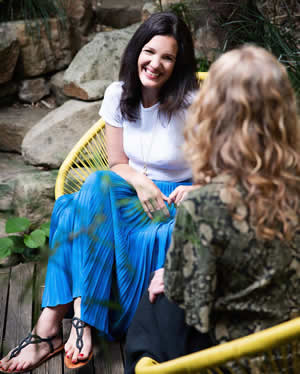Positive Health Online
Your Country

You Can Change your Neural Pathways to Change your Life – Here’s How
listed in nlp, originally published in issue 271 - June 2021
You Can Change your Neural Pathways to Change your Life – Here’s How
by Ruth Kudzi MA Psychology & Education
I have always loved to look at the science and how behaviour changes. I am a development fanatic with an acute hunger for knowledge in neuroscience, psychology, neuroplasticity, personality and human behaviour, and I have fed for the past 25 years! One of my favourite topics is Neuroplasticity – reprogramming our brain and neural pathways – it fascinates me; within this feature I’m going to be looking into how this works and how it can change your life. When we truly understand what is going in the brain and body, and how it all works, then this enables us to have more powerful transformations, which can be more enduring and therefore, be more life changing. The more self-aware we are, the more changes we are able to make that are longer lasting.

If we want to create a longer-term behavioural change, it needs to happen in the brain. If we want it to last, it needs to be underneath what I refer to as the ‘iceberg’ – at the top of the iceberg are our visible behaviours; underneath we have our values, our needs, our strengths, our beliefs, our thoughts, our feelings and our emotions. We are not going to be able to change that pinnacle, the tip of the iceberg, unless we change what’s underneath. The brain can be moulded, and we can develop new connections, which allow us to think, feel, be and act differently. We are able to build new neural pathways – new ways of thinking and new ways of being.
The black cab study by Eleanor Maguire was a revolutionary study when it came out in 2000.[1] Within this study they examined the brains of black cab drivers before they did the knowledge exam where they learn all of the streets in London; this can take 2-4 years to complete. They then looked at their brains again and what they found was a change in the structure of their brains – an increase of their grey matter – posterior hippocampus – they’d reprogrammed the brains. This showed that even as adults we can adapt and learn new tasks – they were able to see how the structure changed via learning something new; this was one of the first studies that really showed that the human brain is plastic.
So, reprogramming the brain doesn’t mean that you are going in there fishing around and having an operation; it’s about creating those new neural pathways. Neuroplasticity refers to the ability of neural networks in the brain to change through growth and reorganization. What’s interesting is there’s been a lot of research into, how long it takes. To create a new belief, a new thought, a new way of being, a new way of acting… there have been some studies that have said that it can take as little as 21 days and some which show it can take over 130 days – with the average being of around 66 days – so, it depends on the individual, also, evidence suggests it depends on a few other things too, including your focus.
How focused are you in changing what you want to change. There is evidence that visualization of the ‘new you’ being that new person, can help you be more successful in this change, as it is laying the foundations of that new neural pathway – this is what is often referred to as ‘future pacing’ and allows you to tap into how you want to think, feel and act. Next, you then you have to focus on doing it – the action, the emotion and thoughts. If you really want it, it’s about that relentless focus, with an intention and strong anchor to the reason why you want to change. The reasons for the change you want to make, needs to be important to you.
Additionally, a positive emotion is needed in order to set that intention of that change, before you go there, this can help you really help you engage with your brain. BJ Fogg talks about this in his book Tiny Habits, he says that we are not going to make a long lasting behavioural change if we’re doing something that doesn’t evoke a positive response or emotion.[2] For example; if we hate running and keep saying ‘we’re going to run’ but we don’t feel a positive emotion when we run, it’s going to be difficult for us to build that habit overtime – because, we are pleasure seekers, we want to feel good, so it’s important to do things that you can image happening, such as; finding an exercise that you enjoy, and then setting that as your intention.
Really focus on what you want to change, visualize and imagine what it looks like and feels like when you have been successful at it – then do the work – commit to daily visualization, thoughts and action and then celebrate each step you take that helps you get there. The brain needs positive reinforcement.
I like to use this analogy - if you’re skiing and you get onto the slopes, the easiest way is to go down the path that everyone else has gone down, it’s the easier path, rather than taking on the fresh snow that nobody has been down which, is much harder - so, the majority of us take the easier route. This is how our brain works – if we’ve had a route or path of being, doing, thinking, acting, feeling… for all of our lives, then our defaults is to go back to that way and that route… the route we’ve been using for thirty, forty fifty, sixty years…or more. However, by going back to that old / used route, we are reinforcing it every time. So, in order to set a new pathway or new way of being, doing, thinking, acting, feeling… we have to repeat it and focus on it in order to strengthen the pathway and make that new run in the snow; overtime this can then become the new preferred route.

Be aware, that sometimes you’re going to go back to those old behaviours and routes, especially during times of heightened stress. But, that is okay, it’s just a sign to go back and reassess and then work on the new route again. Often people combine this work around building new ways of being, alongside uncovering and dismantling limiting beliefs that maybe stopping you from moving forward. An experienced coach or therapist can help you with this whole journey.
Remember, we all have the ability to change – life is not fixed, it's fluid... we can learn from every situation and can build a new way of being by creating new neural pathways to change our reality. Once we accept that, our energy and mind-set play a key role in the paths we choose. We need to have that intent and purpose and motivation and when we do powerful things can happen that can be LIFE CHANGING.
Bibliography and Further Reading
- Katherine Woollett and Eleanor A Maguire. Acquiring “the Knowledge” of London's Layout Drives Structural Brain Changes - Author links open overlay panel Current Biology, 21 pp 2109 - 2114. 2011. Recalling Routes around London: Activation of the Right Hippocampus in Taxi Drivers. Eleanor A. Maguire, Richard S. J. Frackowiak and Christopher D. Frith. Journal of Neuroscience: 17 (18) 7103-7110. 15 September 1997.
- BJ Fogg. Tiny Habits. Publisher. Penguin Books ISBN: 9780358003328. 31 Dec 2019.
Comments:
-
No Article Comments available